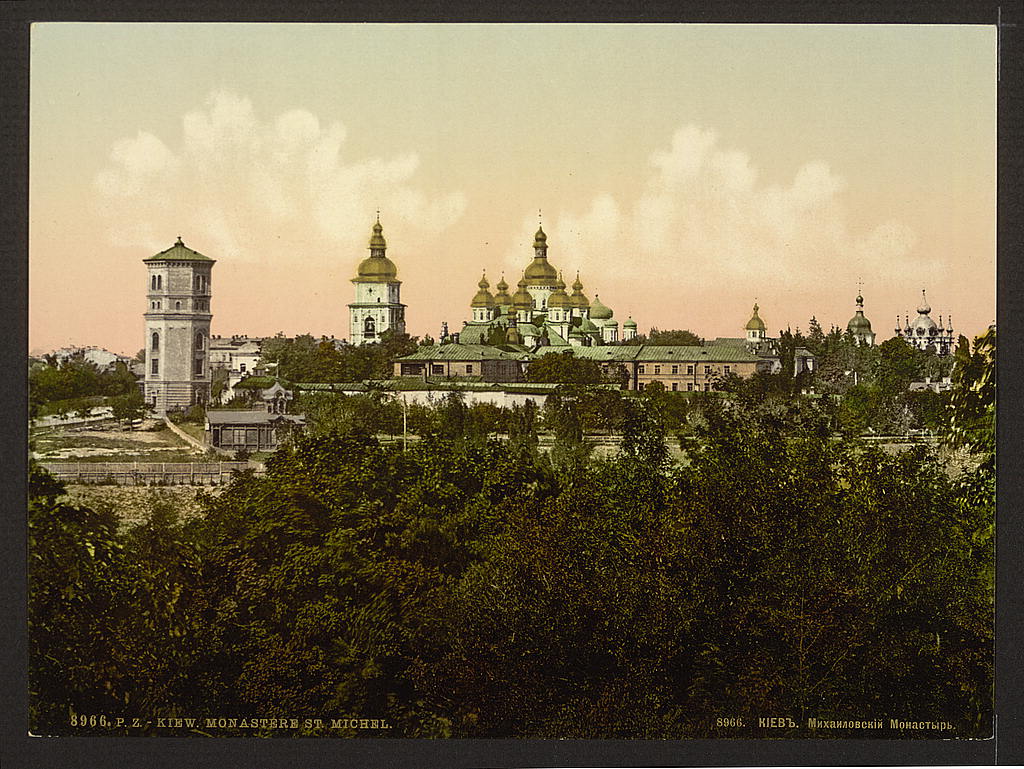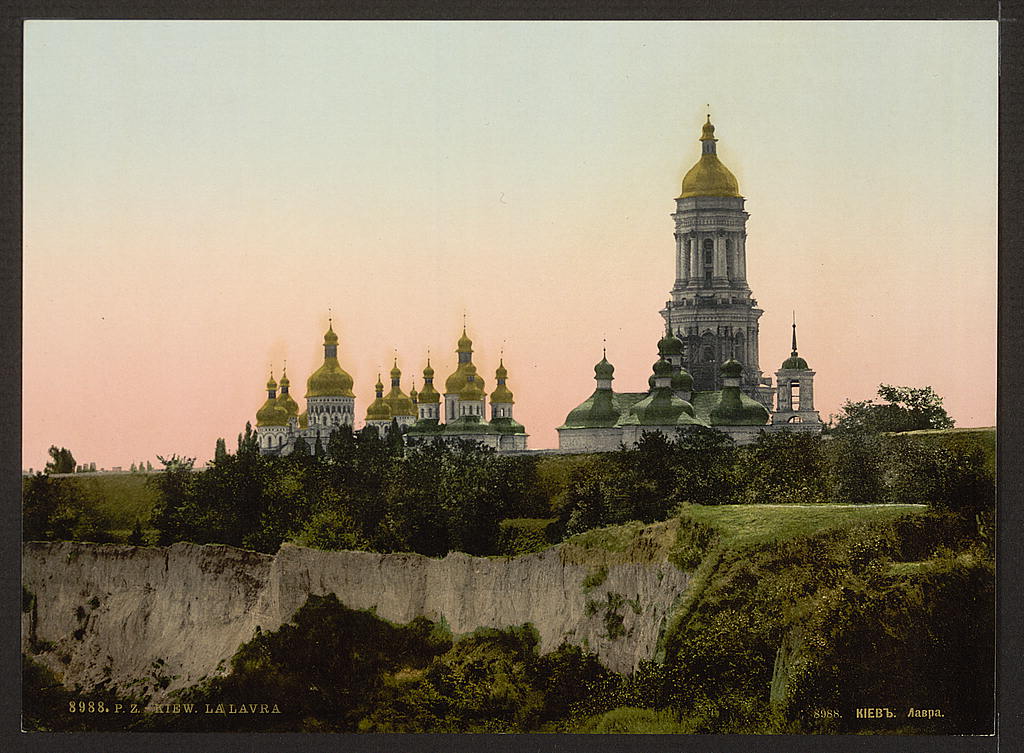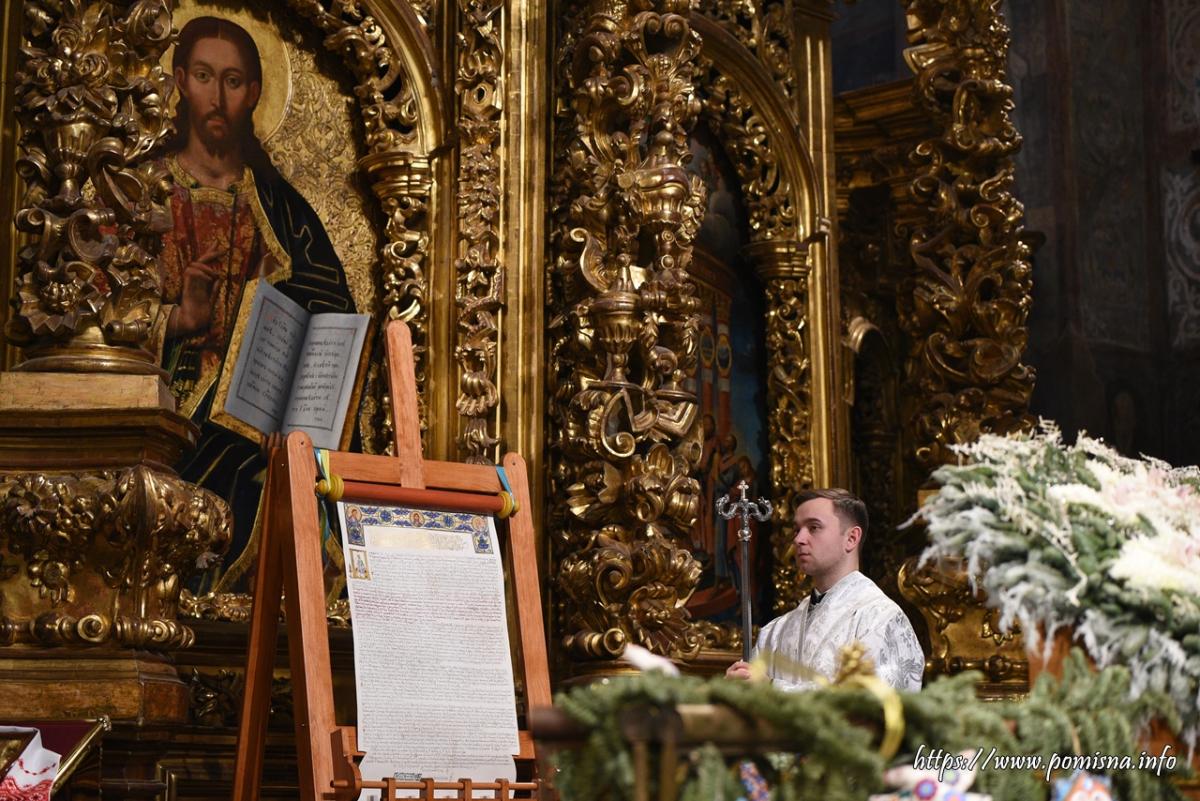More about the Council: History in the making: future Ukrainian Orthodox Church elects its Primate
Many in Ukraine are celebrating a strategic victory over Moscow: after all, the Ukrainian Orthodox Church of the Moscow Patriarchate (UOC MP) would no longer be the only recognized, or canonical, Church in Ukraine, its pro-Russian influence over the minds of Ukrainians will be diminished, and Ukraine upped its game in the struggle for international subjectivity. However, others view the insignificant participation of the UOC MP as a misfortune and lament the absence of real Church unification. Meanwhile, the Moscow Patriarchate and the UOC MP has condemned the Council as "schismatic" and punished the bishops and priests who took part in it.

Euromaidan Press talked to Archimandrite Cyril Hovorun, PhD, Senior Lecturer at Stockholm School of Theology, former Chairman of the Department for External Church Relations of the UOC MP (pictured on the left), to understand what happened at the Council, what kind of unified Church Ukraine now has, and what lies ahead.
The Unification Council just took place. What is your appraisal of this event?
Generally speaking, it is certainly a very positive event. It fulfilled a long-lasting process of granting autocephaly to the Ukrainian Church. The Tomos for autocephaly could not be granted to any of the existing Churches. In 2008, there was an attempt to get autocephaly from the Ecumenical Patriarchate, and then the plan was that the existing UOC KP would receive the Tomos of autocephaly, that was the position of President Yushchenko of that time. It didn't work. This time, the Ecumenical Patriarchate demanded that not a single existing Church would be granted autocephaly, but a new Church should be established to receive this Tomos. This Church would be comprised of every existing Orthodox Church in Ukraine. It should be really open, inclusive, all-embracing. Only under this condition of establishing a new Church and therefore dismantling every existing Church, meaning that the UOC KP and the UAOC had to dissolve themselves, would the Ecumenical Patriarchate grant the Tomos of autocephaly. So, in order to dissolve the existing Churches and establish a new Church, a Unifying Council was needed.

The Council established a new Church and thus opened the door to granting autocephaly to this new Church by a Tomos. The next step will be on the 6th of January when the newly elected Primate of the new Church will go to Constantinople [Istanbul - Ed.] to receive the Tomos. So this is the penultimate stop in this long-lasting saga of Ukrainian autocephaly.
At the same time, it's just the beginning of the beginning. There will be a new process when the new Church will have to grow and get mature.
We saw that the UOC MP did not participate that much in the Council. Why was that? How many bishops of the UOC MP were there?
There were two bishops - Metropolitan Symeon from Vinnytsia and Oleksandr of Pereiaslav-Khmelnytskyi. They brought with them written requests which delegated to them the right to vote on behalf of other bishops who were not present. There was a discussion at the Council whether it was possible to accept these votes in absentia, and it was decided that it was impossible. Those votes were not counted. There were two physically present metropolitans, which was much less than was expected, and I think it significantly reduced the possibilities of the new Church at the beginning of its existence.
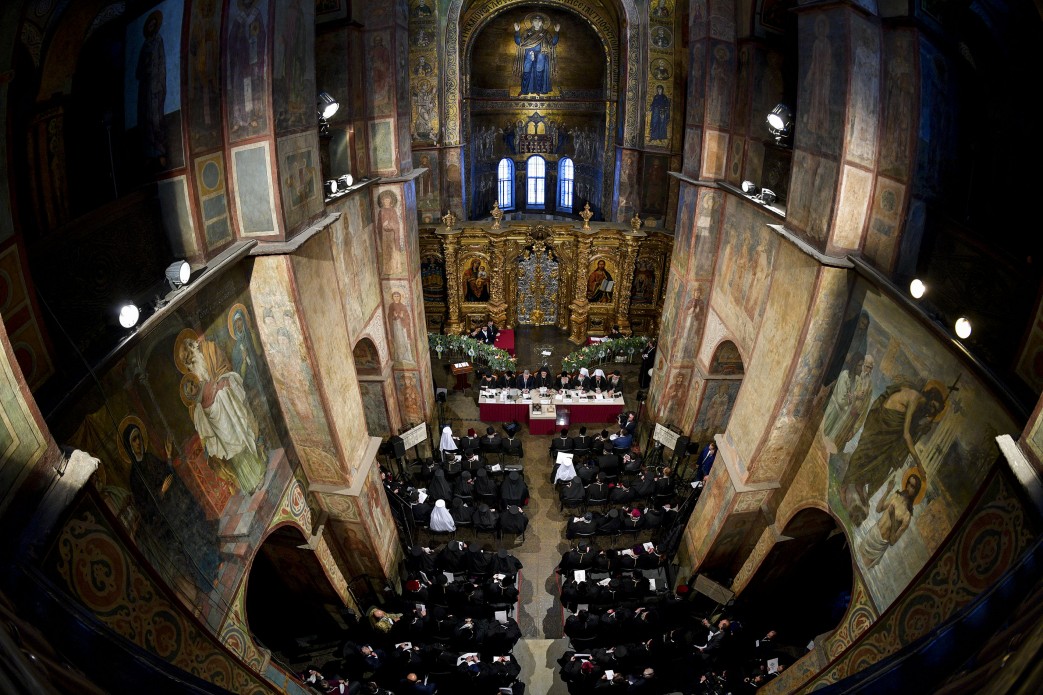
The requests and desires of the Ecumenical Patriarchate were clear: as many as possible, the more the better, bishops of the UOC MP should participate in the new structure. Hopefully, there will be more bishops who will join later on. They are mostly following their flocks, their parishes, priests, and people. But they decided not to participate in the Council in the founding moment of the new Church. There are three factors why.
- Primarily, and most importantly - the position of the Moscow Patriarchate in Moscow and Ukraine. They did everything possible to prevent those bishops from participating by both threatening and encouraging them not to take part in the Council, and this pressure worked in the case of many bishops.
- The Ukrainian state promised to the Ecumenical Patriarchate to encourage in different ways the bishops from the Moscow Patriarchate to take part but failed in that promise.
- The UOC KP per se, which was not much interested in the participation of the bishops from the UOC MP. Remember the statements of the UOC KP which declared that only those bishops that had in the very beginning declared their willingness to come to the Council should come to the Council, which was a violation of the original agreements that everyone who would come to the Council could participate. These discouraging statements and behavior contributed to the insignificant presence of the UOC MP.
The position of the Ecumenical Patriarchate was to grant the Patriarchal status to the new Church under the condition of a full, as much as possible, participation of all Churches in Ukraine. It didn't happen, therefore, the granting of the patriarchal status to the Church has been postponed until the undefined future.
Let's take apart these reasons why the UOC MP and UOC KP didn't want to participate. We see that in the statement of the UOC MP's Synod responding to the Council, the Moscow Patriarchate is resisting Ecumenical Patriarchate’s claims over Ukraine citing the time when Constantinople entered the Florentine Union with Rome. On this basis, it is claiming that the Ecumenical Patriarchate has lost all moral rights to interfere in Ukraine, that Moscow's unilateral schism from Constantinople, its Mother Church, was justified, and that the Moscow Patriarchate's jurisdiction over Ukraine is rightful. How can you answer this historical allegation?
First, the Metropolia of Kyiv with the center in Kyiv continued to exist under the jurisdiction of Ecumenical Patriarchate more than 200 years after the Union of Ferrara-Florence. No one doubted the authority of the Ecumenical Patriarchate in Ukraine two centuries after the union. So what the Synod of the UOC MP says is an excuse, not a reason for its objections against Constantinople. Even if you take the autocephaly of the Russian Church, because it is closer in time to the events of the Ferrara-Florence council, it didn't happen because of union. The statements like we declared our autocephaly unilaterally, uncanonically, without the consent of the Ecumenical Patriarchate, because it had fallen into union - are anachronistic.
Why?
The rulers of Moscow wanted autocephaly for their church for political reasons. They used political instruments, declared autocephaly unilaterally and remained in a schism with the Ecumenical Patriarchate for a long time even after the Ecumenical Patriarchate restored its Orthodox identity in the sense that it rejected the Union. Moscow still insisted that it is independent because of the Union that had happened in the past. But again, the story of Moscow’s independence is different from the transmission of Kyiv Metropolia to Moscow 200 years later. Therefore, these explanations by the Synod don't stand up to scrutiny.
But the UOC MP also says that Filaret and Makariy had never actually repented for being in a schism, and therefore any unification with "unrepentant schismatics" from the UOC KP and UAPC is impossible.
It's a good question. Ideally, there should be repentance. However, historically the process of healing schisms rarely involved repentance. This was the case, for instance, with the ROCOR, the Russian Orthodox Church Outside Russia, when it unconditionally reunited with the Moscow Patriarchate in 2007. Before that, the ROCOR committed many canonical crimes, even rebaptized people from the Moscow Patriarchate, and no one asked them to repent when they joined the Moscow Patriarchate.

I would also like to mention an ancient historical case, which is relevant to your question, that of the Novatian schism. This was a schism which occurred in the 3d century. It had to do with the practice of repentance of those who had fallen during the persecutions. There were Christians who the under pressure of the persecutions rejected Christ and sacrificed to the idols. Then, they wanted to rejoin the Church. There was a strict group within the Church who didn't want to accept them. There was also a group which was more understanding, more accommodating for the fallen Christians. Those who demanded the application of very strict discipline to those who had fallen eventually ended up themselves as a schism called Novatian. This history demonstrates that if there is a group within the Church which is too restrictive, too unkind towards those fallen, they can easily end up as a schismatic group within the Church. I'm afraid that this may repeat in the Ukrainian situation.
But what about the Kyiv Patriarchate, why was it so opposed to the participation of the UOC MP?
Well, the Kyiv Patriarchate's vision of the new Church was that the new church shouldn’t be really that new. They wanted a reincarnation of the old structure under the new name without changing very much in the structure of power, the ethos of the new Church. I should say that they managed it to a great extent. So the new Church that we have is essentially a slightly modified UOC KP. The broader participation of the UOC MP in the new Church would certainly broaden its scope and modify its structures.

Why did it all happen this way? The goal of the Unification Council was pretty grand, wasn't it.
The initial scenario and the goal was very good. The main point of this scenario was that the new Church has to be large, comprehensive, all-embracing, inclusive, accommodating all groups that wanted to join it, welcoming all groups, transparent, fair, and this didn't happen.
Why?
Because the old traditions are strong - the traditions of one-man rule, of reduced and deficient conciliarity. Which can be explained: for a church like the former Patriarchate of Kyiv, to survive under the harsh conditions of criticism and oppression from other churches, the power has to be consolidated, certainly, and discipline should be imposed. But this strategy of survival can alienate the very purpose of the new Church, and make it different from the natural purpose of the universal church.
So far, the new Church which was born under the new circumstances of freedom, which could be much freer, chose as of now to continue the line which existed in the Kyiv Patriarchate.
The Moscow Patriarchate isn't exactly an example of conciliarity and synodality, either.
No, but most people in both the UOC MP and UOC KP wanted a new, more open reality to prevail in the new Church. We will see what will happen. It is too soon to make judgments about what will happen, but what we see has already happened demonstrates the policy of preserving the status quo. The status quo has won.
So we saw a very large role of the state in organizing this Council. How can you comment on this?
Well, first of all, the original scenario envisioned that the Ukrainian Churches themselves were supposed to convene their founding Council. They failed to convene it because of their inability to agree with one another and to find common ground. The Ecumenical Patriarchate took over and initiated the Council. It sent the invitations to every single bishop in Ukraine. All the bishops that came to the Council came on the invitation of the Ecumenical Patriarchate and they brought with them priests and laypeople.
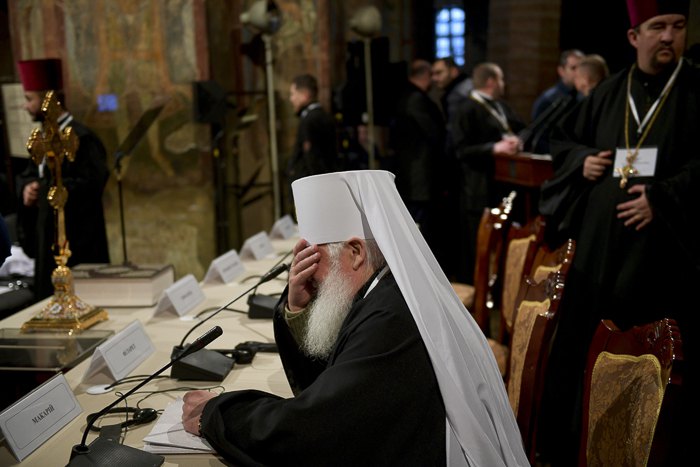
The UOC KP and UAOC didn't like the Ecumenical Patriarchate sending invitations to every single bishop in Ukraine, but they had to accept it, as they had to accept many other suggestions from the Ecumenical Patriarchate which they didn't like. The Kyiv Patriarchate in many of its statements said that not every bishop of the UOC MP can take part in the Council, which was contrary to the original plan and desire of the Ecumenical Patriarchate. Therefore, there was certainly a clash between the invitation of the Ecumenical Patriarchate to every bishop and the desire of the UOC KP to reduce the number of bishops.
So the Council was endangered not to take place at all because of the ambitions and desires of different groups within the Council to prevail over other groups. Therefore, the state had to interfere to pull those groups together and to force those groups to come to the Council, come to the conclusion, to decide over the Statute of the Church and the Primate of the Church, so this is why the Council came together and ended successfully.
Many people are criticizing the role of the state, saying that it's the 21st century, the Church and State are separate, and the state should not interfere in the matters of the Church.
I completely agree with their judgment. However, regretfully, without the role of the State, the Council would probably not have happened.
Maybe the state should have pulled back and recognized that the Churches are not ready?
Probably so, but then we would have to wait one more century.

Now the state should not continue to interfere in the Church. Is that possible - I don't know, because it seems that the state has enjoyed its role as a moderator of the bishops and will probably continue to play this role, which is certainly unhealthy. The state should step aside from this process. As was promised by the President, the role of the state will be to protect the Churches and to protect the choice of the people, which church to go to, and not to encourage or force them to change their jurisdiction. We will see to what point these promises will be kept.
While secular society is criticizing the state's role, they are also fearing that the Ukrainian Church could become similar to the Russian Church.
True, and those fears are not unsubstantiated, this is unfortunately indeed an option. It depends now whether to continue interfering in the matters of the Church will be the choice of the state and personally President Poroshenko, and whether to align with the state will be the choice of the Church. We will see what will be the choice of the bishops of the new Church. So far, the indications are that they don't want to distance themselves from the state. But it's too early to judge.
Here in Ukraine we really like to criticize Russia for its ethnophyletism. What do you think about ethnophyletism in the Ukrainian Church?
The Ecumenical Patriarchate is pretty much aware of such a risk, and they are pretty much aware that the Ukrainian Church will slide into its own version of ethnophyletism. Ethophyletism is a euphemism to define Church’s nationalism and the nationalist agenda which eclipses the ecclesial agenda. Literally, ethnophyletism means tribalism. It has been condemned as a heresy in 1872.

Why is that bad?
The purpose of the Church is not to cherish and promote national identity; the purpose of the Church is to save people and connect people with God. That is what the Church is supposed to be, and that is why the Russian Church has been so criticized because it seems to have other priorities, and this affiliation of the church's agenda with the national agenda has led to ethnophyletism.
I believe that Ecumenical Patriarchate is aware of such a risk for Ukraine. Therefore, they tried to protect the future Church as much as possible from such a scenario. For instance, they inserted some elements in the Statute.
It has been stated clearly in the preamble to the Statute. The very name of the Church thus communicates the intention of the Ecumenical Patriarchate to create a multi-ethnic Church for the entire country, the entire people, citizens of Ukraine.
So that’s why that name was chosen.
They rejected the original suggestion to name the new Church as the Ukrainian Orthodox Church, which would emphasize the ethnic identity of the Church, and insisted that it should be the Orthodox Church, i.e. Orthodox is its primary identity, of Ukraine, of this country.
So, all those accents made by the Ecumenical Patriarchate were made on purpose exactly to emphasize the multi-national character of this Church. I hope that this vision will be embodied in the new Church.
A lot of our readers are celebrating Ukraine's victory over Moscow in this Council right now. What would you tell them?
I think establishing a new Church is not a victory against something. This Church is not a Church against something or someone; it is a Church for something or someone. It is the Church for the Ukrainian people, for them to feel at home in this Church, not to feel alienated in this Church, and this is a reason to celebrate, not the departure from Moscow, which is not a given fact yet. Because the irony is that the Church can depart from Moscow and yet can embody those things which have been criticized by that Church in Moscow. Now those Moscow features in the new Church will have a Ukrainian character. For some people, they will be viewed as good, because they are now Ukrainian; but for the church people, they are not good regardless of whether they are Russian, Ukrainian, Greek, Romanian, whatever.
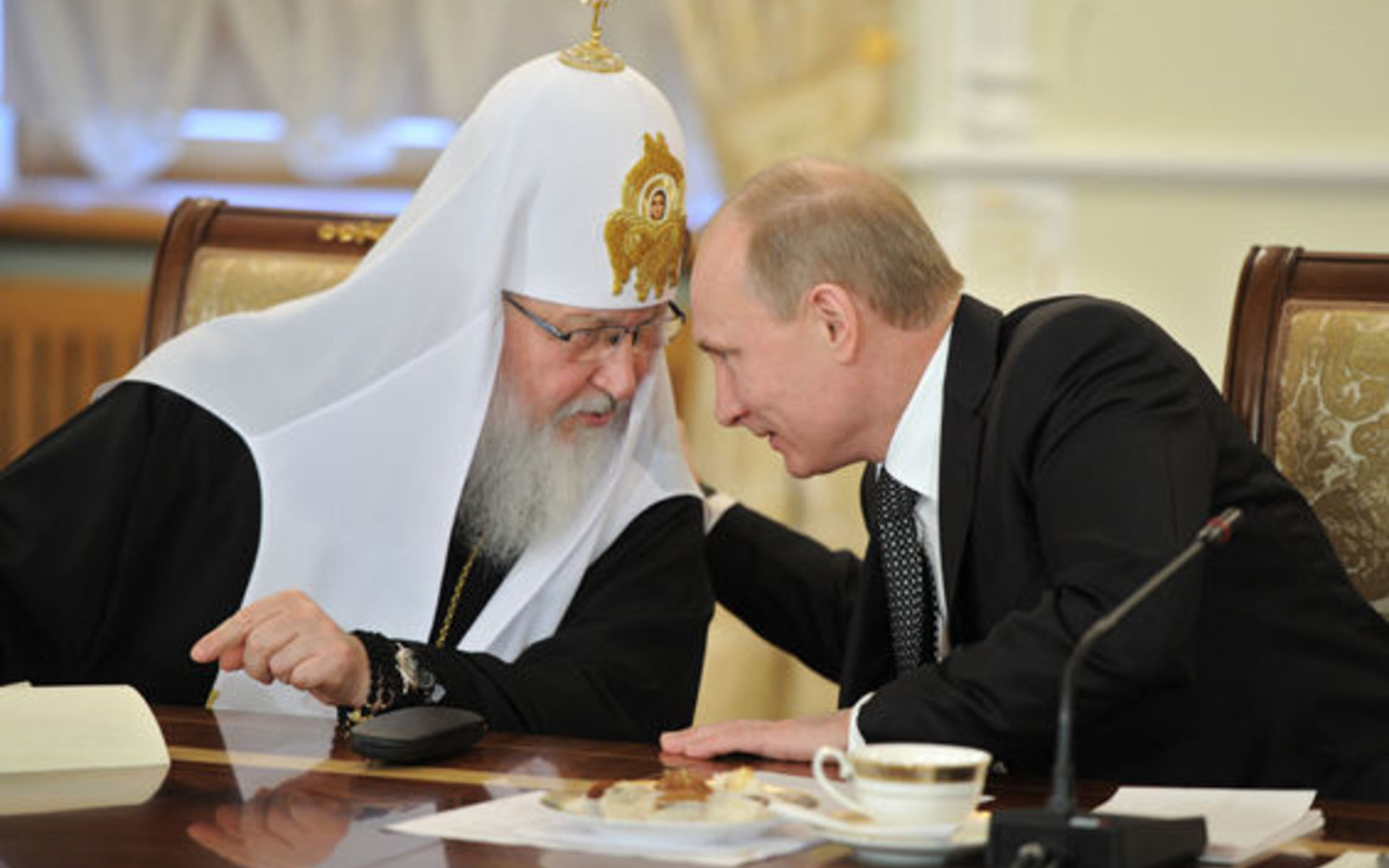
What should we do so that the Church in Ukraine would not be like the Church in Moscow?
We, including the journalists and civil society in Ukraine which so much supported the new Church, should be watchful, aware of the dangers and risks. There are real dangers of undesirable transformations within the Church from its very beginning, and because the civil society is active in Ukraine it should be active in this regard. It should be watchful, it should care about this Church, and it should warn if the Church goes the wrong way. Which is very likely to happen.
If we were to fantasize that the Church will renew itself, what tasks would it have before itself?
If the new Church just follows the plan, the Statute drafted by the Ecumenical Patriarchate, it's a recipe for being a normal Church. Like, for instance, to be open, inclusive, to all groups from other jurisdictions in Ukraine, to be friendly, not to build its identity on negating and rejecting something, but on embracing and holding to something.
The most important thing is to hold to the Gospel and Christ's message - after all, that is the most important thing in the Church. The leadership of the Church should be accountable to the people, to the faithful. the participation of the faithful in the decision-making process is called Synodality, or conciliarity in the Orthodox Church; it should be upheld. The lay people should be real stakeholders in the new Church, so there should be communication within the Church, between the different strata of this Church, and communication between the Church and other religious groups in the Ukrainian society.
The Church should exist in a mode of constant dialogue with other religious groups in Ukraine, it should appreciate and acknowledge the religious diversity of Ukraine, which has been a great achievement of Ukrainian society. Not a single Church in recent history had ever had a monopoly over Ukraine on religion. The new Church should not attempt at establishing any sort of monopoly over religion in Ukraine. Other things which are obvious in society, but should be also upheld in the Church: to appreciate the other, to demonstrate openness, transparency, accountability, and dialogue.

The Kyiv Patriarchate criticized the Statute due to limitations, as they saw it, imposed on the Church. What is your view?
I should admit that there are some strings leading from the Statute to the Ecumenical Patriarchate, but I believe they are necessary, to prevent the new Church from the possible deviations in the beginning of its journey. These strings would secure the accountability that I mentioned, the transparency within the Church. It would not allow any group to monopolize power inside the Church. Unfortunately, so far the Churches have proven to be unable to secure those features on their own. Therefore, they need some strings attached to them.
What about the people who do not want to join this new Church, and choose to remain in the Moscow Patriarchate? What should Ukraine be doing about them?
Fortunately, in Ukraine there are now two canonical options for the faithful - the UOC MP or the new independent Church. There is even a third minor option, the presence of the Ecumenical Patriarchate per se, through the Stavropegion that has been established. So, it will be a good thing for people to choose. It would be good if they go to any church. I believe that in the present situation, the growth of Christianity in Ukraine will not be secured by the internal quality of the Churches, but by the competition between them. This is a sad situation, but that's how it is.
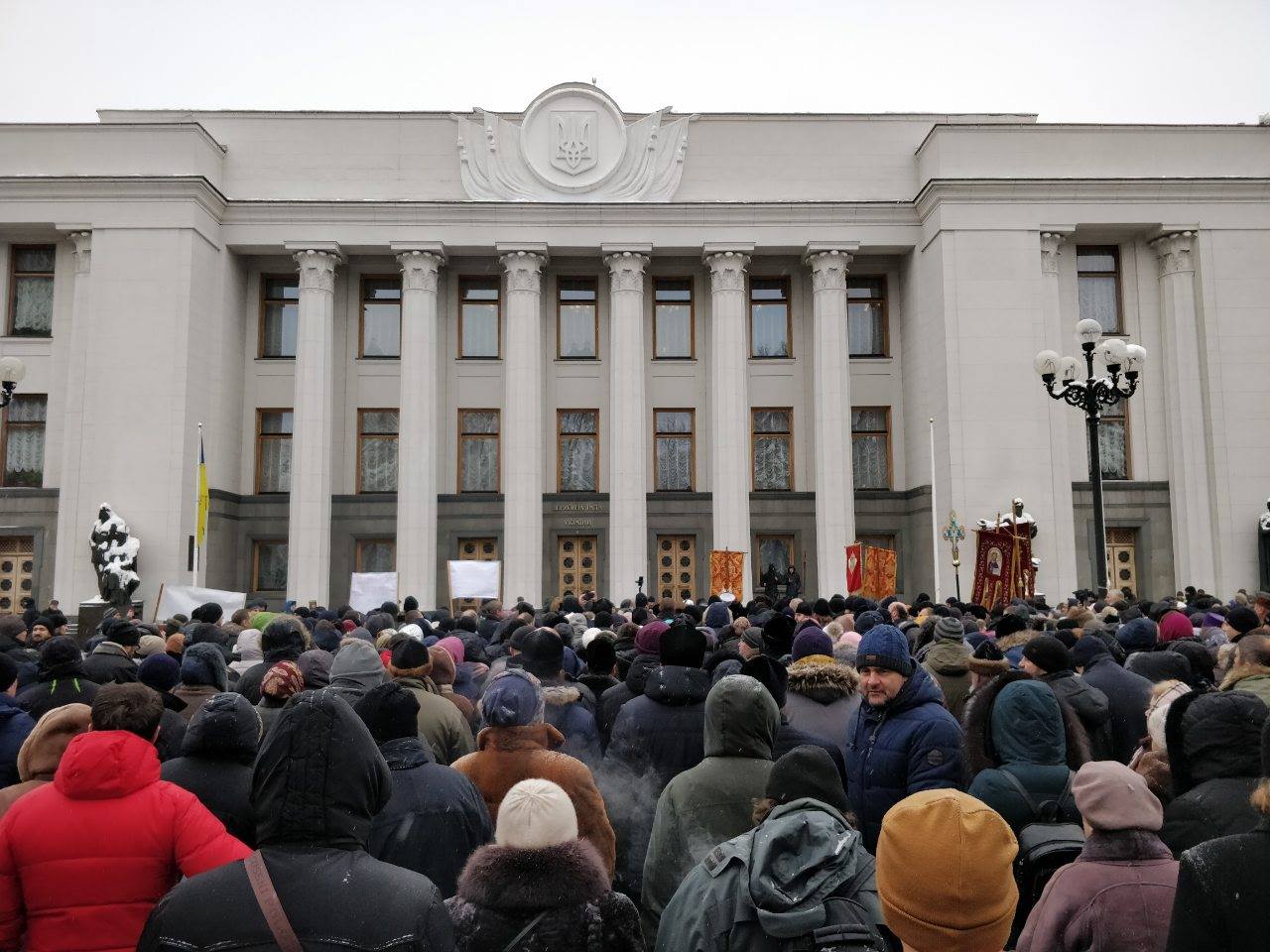
The members of the UOC MP are often seen as traitors in Ukraine, are a target of certain hatred and tension.
I think this is not fair. It is a generalization, which is not admissible in a democratic society. You cannot identify everyone in the UOC MP with the position of its leadership. The standpoints within the UOC MP is diverse, and I think they will remain very much diverse even after some communities will join the independent Church.
I think the UOC MP can become the Other for Ukrainians, and this is wrong, because they are the same Ukrainians as those Ukrainians who go to other Churches. They can and should probably criticize the leadership of the Moscow Patriarchate in Ukraine, but should not extrapolate the accusations on every member of the Church.
Therefore, I believe that if the establishment of the new Church, if it will lead to more hatred, more animosity, more division in Ukrainian society, it's not a healthy development. Eventually, we should arrive at the situation when we have two jurisdictions in good relations with one another, in partnership with one another, peaceful coexistence as it is in other countries where there are several Orthodox jurisdictions. Only this will be a healthy development of the present situation. If this will lead to more strife, contradiction, tensions, and even religious wars, this situation should be corrected. The new Church cannot at any price encourage this kind of feelings, of rejection, of enmity, of hatred.
What about the international reception of the Church? So far, we have seen indirect reception only by the Pope [at publishing date, the Greek Orthodox Church had also shown signs of recognizing the new Ukrainian Church - Ed].
This reception will depend very much on the behavior of this church. I don't know how long it will take. Now not a single Church apart from the Ecumenical Patriarchate has recognized the new Church. They should begin thinking about it after the Tomos. The other Churches are watching whether the new Church will be open, inclusive - this will facilitate certainly the recognition of the new Church by the Orthodox world. It should not be nationalistic, ethnophyletic. If this new Church follows the recommendations of the Ecumenical Patriarchate, it is on a good track to be recognized eventually by the rest of the Churches. If it doesn't follow them, the recognition by the other Churches can be delayed significantly.
What is the status of the Church now? Does it exist?
It does. I would distinguish between the Church being legal and legitimate. After the Tomos, it will be legal in Orthodox terms, a canonical Church, but not quite legitimate in the terms of being received. So the legitimacy is something which can be increased and reduced. By being recognized, this Church will become more legitimate. It will reach its full legitimacy after being recognized by all Orthodox Churches.
Can we forecast that Ukrainian society will become more interested in the Church?
It depends on the Church. If it sinks into scandals and controversies over who is the first, who is more important, who is the Primate, who is the Primate number one or two, then certainly this will not match the expectations of society and it will become even more disappointed in the new Church. If the Church meets the criteria of society in terms of transparency, accountability, and fairness, this will certainly encourage the society to support this Church.
I should emphasize that the Church is not a civil organization, it's the Church. Its mission is to connect people with God. But certainly it should have some relation with society and this relation should be preferred over the relationship with the state. The new Ukrainian Church should embark on its own aggiornamento, which is an Italian word to describe the new position of the Catholic Church after Vatican II in the modern society. It's an adjustment to the new conditions of society. It's not about assimilation, it's the opposite of assimilation; it's about the Church being itself but in a relationship with civil society.
If we compare our Ukrainian Church with the other Churches, did any other Church have such a history?
Every single Church had it, and they went through birth pains just as the Ukrainian Church does now, even larger pains.
/Interview by Alya Shandra.
Read also:
- History in the making: future Ukrainian Orthodox Church elects its Primate
- Tomos ante portas: a short guide to Ukrainian church independence
- Why Ukraine needs a free and recognized Orthodox Church
- The Great Orthodox Council ended. Now what for Ukraine?
- Inside Ukraine’s appeal for Church autocephaly
- How Russia used Orthodox fundamentalism to hijack the Church Council in Crete
- Orthodox world heading toward a new schism
- Draft tomos gives Ukrainian Church less autonomy than it hopes to obtain


